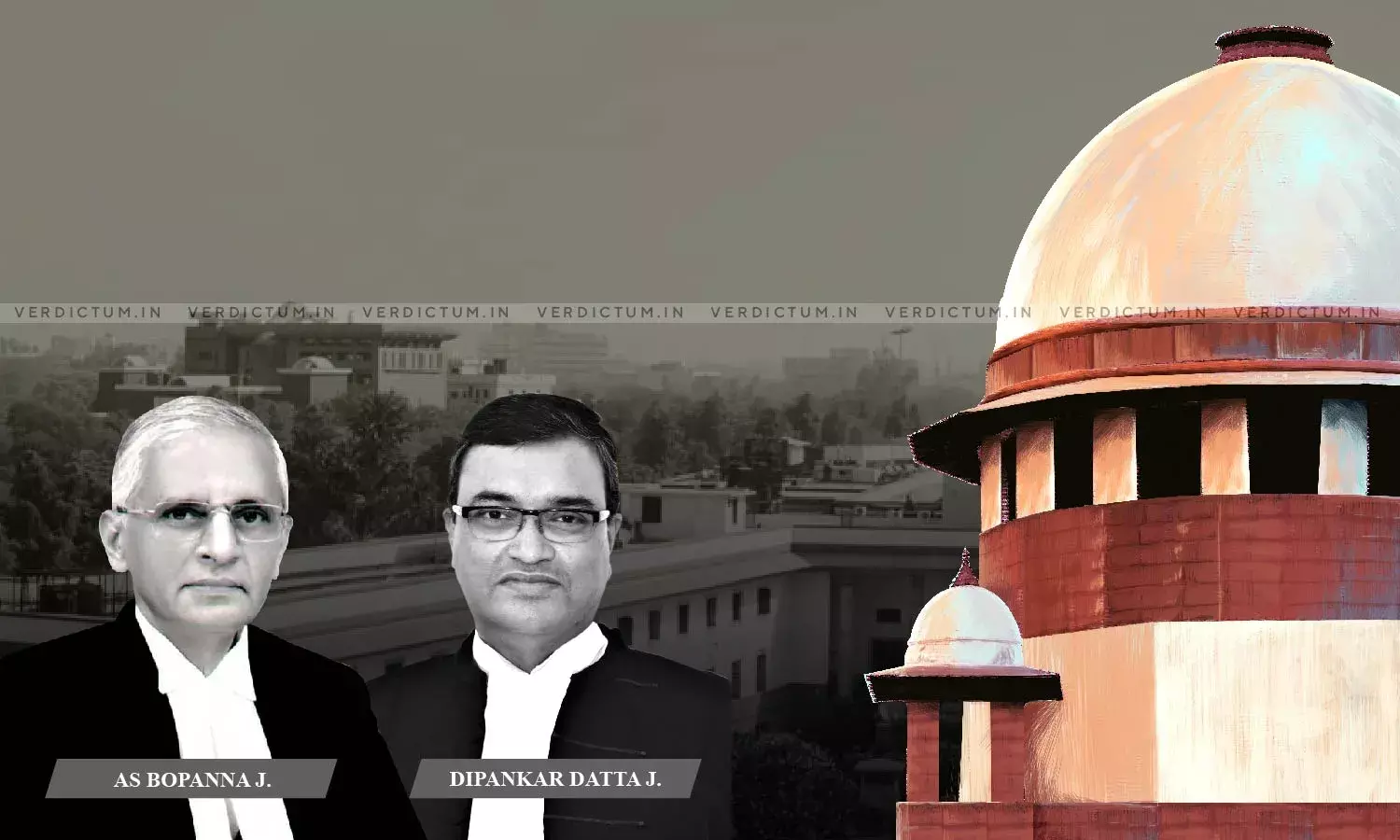Claim Regarding Right, Title, And Interest In Respect Of Shares In Decretal Property Cannot Be Thrown Out At Threshold: Emphasizes SC
Noticing that the Appellants have been deprived of the fruits of the Decree for over two decades, the Supreme Court requested the Executing Court to proceed with the application of the Appellants under Rule 97 of Order XXI of the CPC together with the objections raised by the Respondents on their own merits.
While stating that in terms of the ordainment of Rule 102 of Order XXI, Rules 98 and 100 thereof would not apply to resistance or obstruction in execution of a decree for the possession of immovable property by a person to whom the judgment-debtor has transferred the property after the institution of the suit in which the decree was passed, a Two Judge Bench of Justice AS Bopanna and Justice Dipankar Datta observed that “the claim regarding right, title and interest in respect of their respective shares in the decretal property, as raised by the Respondents, cannot be thrown out at the threshold since it is well within their rights to contest the application under Order XXI Rule 97, CPC filed by the Appellants”.
Advocate Shyam Diwan and Ashwani Kumar appeared for the Appellant, whereas, Senior Advocate V. Chitambaresh appeared for the Respondent.
The challenge in these appeals is the common interim order of the Executing Court dated June 29, 2018, whereby the Executing Court was seized of an execution application under Section 47 read with Order XXI Rule 97 CPC filed by the Appellants seeking enforcement of the decree and removal of resistance put forth by the contesting Respondents. The declaration of title was sought by the Appellants in respect of land property and recovery of possession with mesne profits from the Respondents. The Executing Court, however, in its order held several objections filed by the Respondents to be maintainable and deemed it necessary to adjudicate the same on their own merits, after due recording of evidence.
After considering the submissions, the Apex Court observed that Section 47 of the CPC mandates that the court executing the decree shall determine all questions arising between the parties to the suit or their representatives in relation to the execution, discharge, or satisfaction of the decree and that such questions may not be adjudicated in a separate suit.
“Should there be any resistance offered or obstruction raised impeding due execution of a decree made by a court of competent jurisdiction, the provisions of Rules 97, 101 and 98 of Order XXI enable the executing court to adjudicate the inter se claims of the decree-holder and the third parties in the execution proceedings themselves to avoid prolongation of litigation by driving the parties to institute independent suits”, added the Court.
While answering to the arguments of the counsel for the Appellant that since the Respondents are pendente lite transferees and the doctrine of lis pendens applies, and in view of the clear terms of Rule 102, the Respondents are not entitled to the protection of having an adjudication of their claims in terms of Rule 98, the Bench clarified that merely because the Suit was ultimately decreed on 21st October 2000 and ultimately was upheld by this Court with a minor modification of the amount of compensation, that would not be sufficient justification to throw out the objections raised by the Respondents as being devoid of merit.
“Simply because this Court did not interfere with the first appellate decree dated 11th February 2014 is no ground to hold that such order would bar an enquiry of the nature contemplated by Rule 101. This Court would not allow its vision to be colored by treating the order dated 13th October 2014 as bringing an end to the controversies between the decree-holders and the strangers/third parties, who were not before it”, added the Bench.
Accordingly, the Apex Court dismissed the SLP.
Cause Title: Jini Dhanrajgir and Anr. v Shibu Mathew and Ors.
Click here to read/download Judgment




